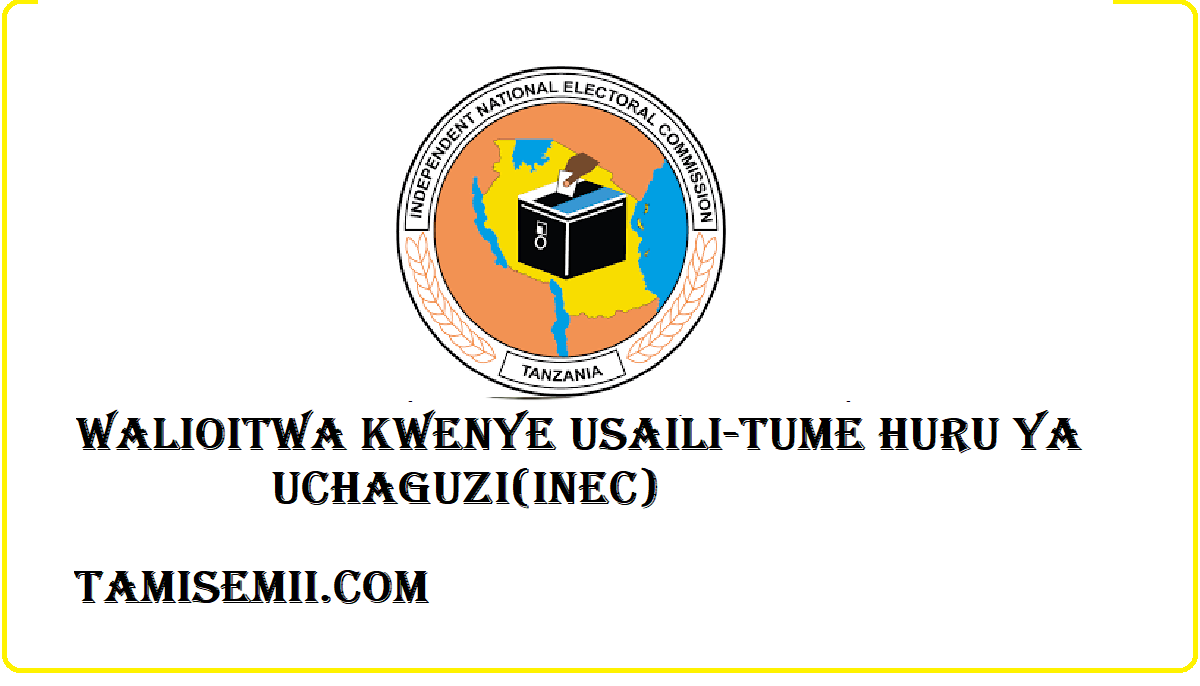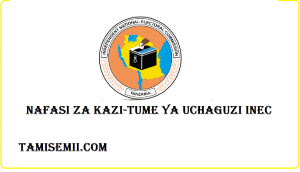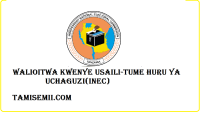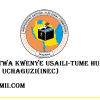PROFAILI YA INEC- TUME HURU YA UCHAGUZI
Welcome to tamisemii.com, your trusted source for job opportunities and education updates. We are dedicated to providing our readers with the latest information and insightful articles to help them stay informed and succeed in their endeavors. Today, we bring you an in-depth look at the Independent National Electoral Commission (INEC), a cornerstone of Tanzania’s democratic process. This article highlights INEC’s vision, mission, core values, and historical background, reflecting its crucial role in ensuring free and fair elections.


Vision of the Commission
A credible electoral system that ensures free and fair elections.
Mission Statement
To supervise and coordinate the conduct of elections in accordance with legal provisions to safeguard democracy for the benefit of citizens, political parties, and candidates.
Core Values
- Impartiality
- Transparency
- Integrity
- Accountability
- Professionalism
- Inclusiveness
Background of the Commission
In 1991, the then President of the United Republic of Tanzania, the late Ali Hassan Mwinyi, appointed a Commission under the chairmanship of the late retired Chief Justice Francis Nyalali. The purpose of this Commission was to gather citizens’ opinions on whether to continue with a one-party system or to adopt a multiparty political system. Based on the Commission’s report, Article 3(1) of the 1977 Constitution of the United Republic of Tanzania was amended, transforming Tanzania into a nation that follows a multiparty political system.
Furthermore, the Political Parties Act (No. 5 of 1992) was enacted to facilitate the registration of political parties. Additionally, the National Election Act (No. 1 of 1985) and the Local Government Elections Act (No. 4 of 1979) were amended to transition from a one-party system and allow elections under the multiparty system. Following these amendments, the National Electoral Commission was established on January 13, 1993.
Moreover, in 2021, a Stakeholders’ Meeting was held to discuss the state of multiparty democracy in Tanzania. Among other things, the meeting resolved to improve the electoral system in the country. Consequently, on December 23, 2021, the President of the United Republic of Tanzania, Her Excellency Dr. Samia Suluhu Hassan, formed a task force to assess the state of democracy and provide recommendations to enhance democratic and political conditions in the country.
The task force recommended improvements to the National Election Act, Chapter 343, and the Local Government Elections Act, Chapter 292. These improvements led to the enactment of the Independent National Electoral Commission Act No. 2 of 2024 and the Presidential, Parliamentary, and Councilors Elections Act No. 1 of 2024. Following the enactment of these laws, the name of the National Electoral Commission was changed to the Independent National Electoral Commission.
Independent National Electoral Commission
The Independent National Electoral Commission is established under Article 74(1) of the 1977 Constitution of the United Republic of Tanzania. According to the provisions of Articles 74(7) and (11) of the Constitution and Section 6(1) of the Independent National Electoral Commission Act No. 2 of 2024, the Commission is an autonomous body that makes official decisions regarding the execution of its duties through meetings. In carrying out its constitutional duties, the Commission is not obliged to follow orders or directives from any individual or government department or the opinions of any political party.
Conclusion
INEC’s establishment and evolution reflect Tanzania’s commitment to democracy and fair elections. By adhering to its core values and mission, INEC continues to uphold the principles of transparency, impartiality, and integrity in the electoral process. For more updates on job opportunities and education, stay tuned to tamisemii.com, your go-to blog for the latest information and insights.



